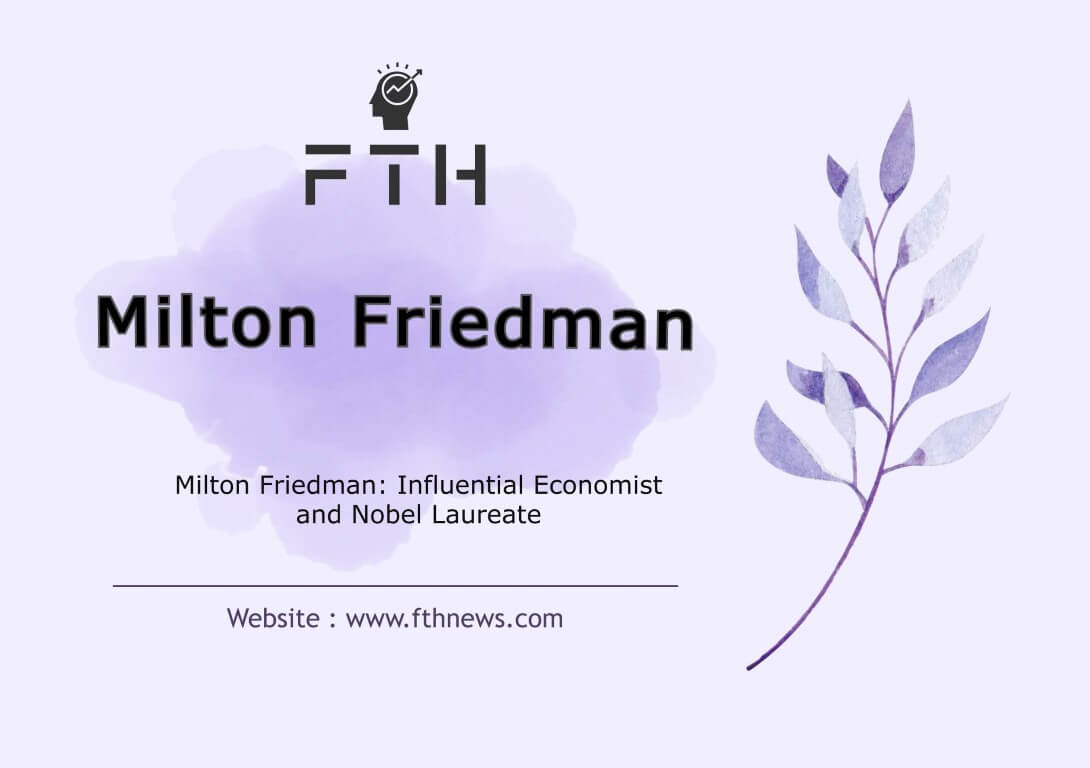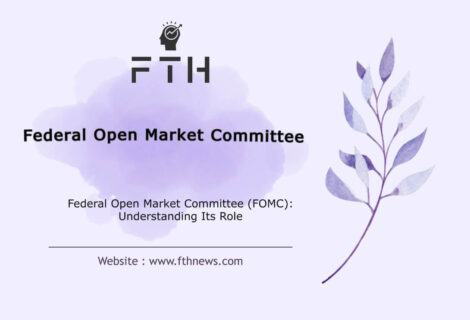
Milton Friedman: Influential Economist and Nobel Laureate
Milton Friedman, an American economist and Nobel laureate, played a pivotal role in shaping economic ideologies during the latter half of the 20th century. Known as a leader of the Chicago school of monetary economics, Friedman’s contributions to free-market capitalism and monetarism continue to influence economic thought today.
Who was Milton Friedman?
Milton Friedman, an American economist and Nobel laureate, stands as a giant in the field of economic thought. Born on July 31, 1912, in Brooklyn, New York, Friedman emerged from humble beginnings in an immigrant family of Austro-Hungarian descent. His early life experiences laid the groundwork for a remarkable intellectual journey that would significantly impact economic theories.
In the realm of economic ideologies, Friedman rose to prominence as the leader of the Chicago School of monetary economics. His advocacy for free-market capitalism and monetarism, coupled with a robust critique of Keynesian economics, solidified his position as one of the most influential economic voices of the 20th century.
Friedman’s accolades include being awarded the Nobel Prize in Economic Sciences in 1976. His research, particularly in consumption analysis, monetary history and theory, and stabilization policy, earned him this prestigious honor. His seminal work, “Capitalism and Freedom,” and his role in shaping the Chicago School’s principles contribute to his enduring legacy.
As we delve into the life of Milton Friedman, it becomes apparent that his contributions extend far beyond the realm of academia, leaving an indelible mark on economic thought and policy.
Early Life and Education of Milton Friedman
Milton Friedman’s intellectual odyssey unfolded at Rutgers University, where his initial interest in mathematics gradually transformed into a profound fascination with economics. During his undergraduate years, Friedman not only excelled academically but also began shaping his unique perspective on economic principles.
Upon completing his bachelor’s degree in 1933, Friedman’s insatiable thirst for knowledge led him to the University of Chicago. Here, amidst the intellectual vibrancy of the Chicago School, Friedman’s ideas took root under the mentorship of distinguished economists. His master’s degree marked a pivotal moment in his academic journey.
The culmination of Friedman’s academic pursuits occurred in 1946 when he earned his doctoral degree from Columbia University. His dissertation, a collaborative effort with renowned economist Simon Kuznets, delved into the complexities of independent professionals’ markets, laying the foundation for his future contributions.
The post-graduate period saw Friedman engaged in empirical studies, notably with the National Bureau of Economic Research in Washington. His deepening insights into consumer budgets during this time found expression in his influential work, “A Theory of the Consumption Function.”
This formative phase not only solidified Friedman’s academic prowess but also provided a practical understanding of economic policy. His experiences in Washington, coupled with research collaborations, would shape his later perspectives on monetary policy and government intervention.
In 1946, armed with a doctorate from Columbia University, Friedman embarked on an academic career that spanned decades. His return to the University of Chicago marked the beginning of a transformative era, as he, alongside economist George Stigler, established the influential Chicago School of Economics. Friedman’s journey from humble beginnings in Brooklyn to the esteemed halls of academia played a pivotal role in molding the visionary economist who reshaped economic theories.
Milton Friedman Legacy in Economic Thought
Milton Friedman’s career is an inspiring saga, challenging and reshaping economic paradigms. Born amidst Keynesian dominance, Friedman emerged as a maverick, advocating for monetary policy supremacy and the sanctity of free markets. His journey peaked with the 1976 Nobel Prize in Economic Sciences, a testament to his groundbreaking contributions in consumption analysis, monetary history, and stabilization policy.
Challenging Keynesian Norms
Friedman’s early career was a rebellion against the prevailing Keynesian orthodoxy. At a time when fiscal policies took center stage, Friedman boldly championed the potency of monetary policy. His dissenting views, challenging the established macroeconomic norms, were both audacious and revolutionary.
Advocate for Monetary Policy
A central theme in Friedman’s career was his fervent advocacy for the prominence of monetary policy. Contrary to the Keynesian emphasis on government intervention through fiscal measures, Friedman asserted that controlling the money supply was paramount for economic stability. This contrarian perspective laid the foundation for what would later be known as monetarism.
Nobel Laureate: A Recognition of Innovation
In 1976, the Nobel Prize in Economic Sciences adorned Friedman’s illustrious career. His groundbreaking research not only challenged traditional economic thinking but offered innovative insights into consumption behavior, the intricacies of monetary history, and the complexities of stabilization policy. This prestigious accolade solidified his legacy as a pioneer in reshaping economic thought.
Shaping the Conversation
Beyond academic recognition, Friedman’s ideas permeated the public discourse. His advocacy for free-market capitalism, individual freedom, and limited government intervention left an enduring imprint on economic policies globally. The power of his ideas transcended the ivory towers of academia, shaping the economic landscape for generations to come.
Presidential Medal of Freedom
In 1988, Friedman received the Presidential Medal of Freedom, affirming the profound impact of his ideas on national policy. This esteemed honor underscored not only his intellectual contributions but also the practical influence he exerted on economic policies that valued individual liberty and market dynamics.
Milton Friedman’s career highlights are not just a chronicle of academic success; they narrate a story of a visionary economist who challenged the status quo, revolutionized economic thought, and left an indelible mark on the way we perceive and manage economies.
Milton Friedman Economic Revolution
a maestro of economic thought, left an indelible mark on the discipline through his transformative concept of monetarism. His ideas acted as a catalyst, challenging established Keynesian doctrines and reshaping the trajectory of economic thought.
The Monetarist Paradigm Shift
Milton Friedman’s monetarism was not merely an alternative economic theory; it was a paradigm shift. Contrary to prevalent Keynesian norms, Friedman advocated for a hands-off approach, allowing the free market to operate efficiently. This revolutionary stance marked a departure from the traditional Keynesian emphasis on active government involvement.
Embracing Laissez-Faire Governance
At its core, monetarism championed a laissez-faire approach to economic governance—a philosophy passionately endorsed by Milton Friedman. His argument rested on the belief that minimal government intervention would yield optimal outcomes, empowering market forces to operate without excessive interference.
Monetarism’s Ascendance Under Friedman
The rise of monetarism under Milton Friedman’s intellectual guidance signaled a departure from Keynesian orthodoxy. Its ascendancy marked a significant turning point in economic policymaking, prompting governments worldwide to reconsider their strategies and move away from traditional Keynesian fiscal policies.
The Hands-On Role of Controlling the Money Supply
Central to monetarism was the emphasis on controlling the money supply as a primary tool for economic stability—a principle articulated and championed by Milton Friedman. His collaboration with Anna Schwartz in “A Monetary History of the United States” (1963) underscored that fluctuations in the money supply, rather than inherent flaws in free-market capitalism, were the primary drivers of economic downturns.
From Keynesian Fiscal Policies to Friedman’s Monetarism
Milton Friedman’s monetarist principles sparked a revolution, prompting a shift in economic policy focus. Governments began transitioning from Keynesian fiscal policies to a more stringent control of the money supply. The belief that a stable, predictable growth in the money supply would ensure long-term price stability became a cornerstone of economic management.
Monetarism’s Legacy: Milton Friedman’s Enduring Impact
The legacy of monetarism extends far beyond academic discourse, and at its core lies the intellectual force of Milton Friedman. His ideas seeped into practical policymaking, shaping the economic frameworks adopted by nations globally. Monetarism, with its emphasis on individual freedom, market dynamics, and a restrained role for the government, reflects Milton Friedman’s enduring impact on how societies approach economic challenges.
In the grand tapestry of economic thought, “Monetarism Unleashed” becomes synonymous with Milton Friedman’s intellectual prowess, a visionary whose ideas transformed the very foundations of economic understanding and management.
Milton Friedman’s Profound Contributions
Milton Friedman’s impact on monetary theory reverberates through the corridors of economic thought, with his seminal work “A Monetary History of the United States” standing as a testament to his intellectual prowess. This work encapsulates Friedman’s groundbreaking theories that reshaped the understanding of business cycles, inflation, and the intricate dance between monetary policy and economic stability.
A Monetary History: Friedman’s Magnum Opus
Friedman’s monetary theories find their epicenter in his magnum opus, “A Monetary History of the United States.” Within its pages, he unfolds a narrative that places the money supply at the core of determining business cycles and inflation. This work marked a watershed moment, redefining how economists perceive the fundamental forces shaping economic dynamics.
Demand for Money: Redefining the Quantity Theory
Friedman’s restatement of the quantity theory of money as a theory of demand for money introduced a paradigm shift. By considering factors such as interest rates and expected inflation, he challenged traditional economic perspectives. This nuanced approach to the demand for money brought forth a more comprehensive understanding of the intricate relationship between monetary dynamics and individual behavior.
Monetary Policy: Cautionary Insights for Economic Downturns
While fervently advocating for government intervention in controlling the money supply, Friedman’s wisdom shone through with cautionary insights. He emphasized the importance of monetary policy in economic stability but warned against overreliance. Friedman astutely pointed out the time lag in the effectiveness of monetary policies, urging a more nuanced approach to address economic downturns.
Monetary Theories Reinvigorated
Friedman’s insights sparked a reinvigorated debate in economic circles, challenging established norms and fostering a more dynamic exploration of monetary dynamics. His theories became a catalyst for fresh perspectives, pushing the boundaries of understanding how the intricacies of the money supply influence the ebb and flow of economic cycles.
Legacy in Economic Circles
Milton Friedman’s contributions to monetary theory are not confined to academic realms but resonate in real-world economic policies. The legacy of his ideas endures, shaping how policymakers, economists, and scholars approach the complexities of monetary policy, demand for money, and the delicate balance required for economic stability.
In unraveling the monetary tapestry, Milton Friedman’s contributions stand as a beacon, guiding economic thinkers towards a more nuanced and profound comprehension of the intricate dance between money and the economic heartbeat.
Friedman’s Critique of Keynesian Economics
Milton Friedman’s intellectual prowess came to the forefront in the mid-20th century when he launched a relentless assault on the dominant economic paradigm of the time – Keynesian economics. Through the 1940s, 1950s, and 1960s, Friedman’s critiques reshaped economic discourse, challenging key tenets of Keynesian beliefs and sparking a revolution in economic thought.
The Battlefield of Ideas
In the mid-20th century, Keynesian economics held sway, with its emphasis on government intervention and management of the economy through fiscal policies. Enter Milton Friedman, armed with a contrarian perspective that would shake the very foundations of Keynesian orthodoxy.
Challenging Total Expenditure Doctrine
Friedman’s first salvo targeted the core of Keynesian doctrine – the belief that total expenditure determines national income. He countered this by asserting that the money supply, rather than total expenditure, was the primary driver of economic outcomes. This intellectual duel sparked debates that would redefine how economists perceived the levers of economic control.
Questioning Keynesian Money Demand
Keynesian economics posited a narrow view of money demand, focusing mainly on transactions and precautionary motives. Friedman broadened the horizon by introducing a more comprehensive perspective. He challenged the limitations of Keynes’s money demand function, asserting that money demand was influenced by various factors beyond simple transactional needs.
Inverting the Keynesian Phillips Curve
A significant battleground emerged in the form of the Phillips Curve, which depicted an inverse relationship between inflation and unemployment. Friedman’s critique questioned this relationship, arguing that the government’s attempts to exploit it would lead to inflation without delivering sustained reductions in unemployment.
A Symphony of Critiques: Redefining the Landscape
Friedman’s multifaceted critique reshaped the economic landscape. His attacks on total expenditure, money demand, and the Phillips Curve marked a paradigm shift. By challenging these Keynesian pillars, he paved the way for a more pluralistic and dynamic economic discourse that acknowledged the complexities of economic interactions.
Impact Beyond Academia
Friedman’s critique of Keynesian economics was not confined to academic debates. It reverberated through policy circles, influencing governments and central banks. The once-dominant Keynesian paradigm gave way to a more nuanced understanding of economic dynamics, acknowledging the limits of government intervention.
Legacy in Economic Thought
Milton Friedman’s critiques of Keynesian economics left an enduring legacy. They opened the door to a more diversified economic thought, fostering a richer understanding of the intricate dance between government policies and market forces. Friedman’s ideas laid the groundwork for a more resilient and adaptive economic framework.
In the clash of economic titans, Friedman’s critique of Keynesian economics stands as a testament to the transformative power of intellectual inquiry. It not only reshaped economic discourse in its time but continues to influence how economists and policymakers navigate the complexities of economic management.
Milton Friedman’s Impact and Key Works
Milton Friedman’s indelible mark on the economic landscape transcends the confines of academia, echoing through the corridors of policy, philosophy, and the very foundations of economic thought. His key works, notably “Capitalism and Freedom” and “A Theory of the Consumption Function,” stand as pillars of influence, shaping the discourse on individual freedom, economic principles, and the intricacies of consumer behavior.
1. Capitalism and Freedom: A Manifesto for Liberty
In “Capitalism and Freedom,” Friedman eloquently articulated his belief in the symbiotic relationship between economic freedom and political freedom. Published in 1962, this seminal work argued passionately for limited government intervention, emphasizing the capacity of free markets to serve as engines of prosperity and personal liberty. Its influence reverberated far beyond scholarly circles, reaching policymakers, political thinkers, and advocates of individual freedom.
2. A Theory of the Consumption Function: Unveiling Economic Behavior
Friedman’s exploration of the consumption function in this work delved deep into the complexities of individual economic behavior. Published in 1957, it provided a nuanced understanding of how individuals make consumption, savings, and investment decisions in response to their varying income levels. This work, born out of meticulous research and analytical rigor, laid the groundwork for subsequent studies in behavioral economics.
3. Institutional Contributions: Chicago School and Money Workshop
Milton Friedman’s legacy extends beyond the written word. His pivotal role in establishing a money and banking workshop at the University of Chicago became a crucible for evolving monetary studies, fostering a collaborative environment for scholars. Furthermore, his integral role in shaping the Chicago School of Economics marked a transformative era, where the principles of free markets and rational expectations gained prominence.
4. Nobel Laureate and Beyond: Recognition of Excellence
In 1976, Milton Friedman’s exceptional contributions to economic thought were recognized with the Nobel Prize in Economic Sciences. This prestigious accolade not only affirmed his intellectual brilliance but also solidified his standing as a luminary in the realm of economics. The Nobel Prize served as a testament to the enduring impact of his ideas on consumption analysis, monetary history, and the intricacies of stabilization policy.
5. Global Reach: Influence Beyond Borders
Friedman’s ideas transcended geographical boundaries, influencing economic policies and frameworks worldwide. His emphasis on individual freedom, free markets, and restrained government intervention found resonance in various corners of the globe, shaping economic strategies and philosophical perspectives beyond the United States.
6. The Legacy Lives On: Continuing Impact
Milton Friedman’s legacy lives on not just in the annals of economic history but in the ongoing debates, policies, and intellectual inquiries that continue to shape our world. His works remain touchstones for those navigating the complex interplay of economics, politics, and individual liberties.
In the grand tapestry of economic thought, Milton Friedman’s legacy is not just a chapter but a defining thread. His impact persists, weaving through the realms of academia, policy, and the collective consciousness of those who seek to understand and navigate the intricate dance of economic principles.
Milton Friedman’s Economic Theories
Milton Friedman, a prominent American economist and Nobel laureate, made substantial contributions to economic theory, particularly in the areas of monetary economics, free-market capitalism, and the critique of Keynesian economics. Here’s an overview of some key aspects of Milton Friedman’s economic theories:
1. Monetarism:
- Overview: Friedman is often associated with monetarism, a school of thought that emphasizes the role of the money supply in influencing economic outcomes.
- Quantity Theory of Money: Friedman presented a restatement of the quantity theory of money, arguing that changes in the money supply have both immediate and long-term effects on the economy.
2. Free-Market Capitalism:
- Capitalism and Freedom: In his influential book “Capitalism and Freedom” (1962), Friedman advocated for free-market capitalism as a means to ensure individual freedoms. He argued against government intervention in the economy, favoring voluntary exchange and limited government involvement.
3. Criticizing Keynesian Economics:
- Monetary Policy Over Fiscal Policy: Friedman challenged the prevailing Keynesian view that fiscal policy (government spending and taxation) is more effective than monetary policy. He argued in favor of using monetary policy to control the money supply and stabilize the economy.
- Natural Rate of Unemployment: Friedman criticized the traditional Keynesian view that there exists a trade-off between inflation and unemployment. He argued that there is a natural rate of unemployment determined by structural factors and that attempts to push unemployment below this rate would lead to inflation.
4. Consumption Analysis:
- A Theory of the Consumption Function (1957): Friedman’s work on the consumption function explored how individuals make decisions about consumption, savings, and investment based on their expectations of future income. He introduced the concept of permanent income, suggesting that people make consumption decisions based on their long-term income expectations rather than short-term changes.
5. Demand for Money:
- Restatement of Quantity Theory: Friedman reinterpreted the quantity theory of money as a theory of the demand for money. He considered factors like interest rates and expected inflation in shaping individuals’ demand for money.
6. Monetary Policy Views:
- Stability in Money Supply Growth: Friedman argued for a stable and predictable growth rate in the money supply to maintain long-term price stability.
- Caution on Monetary Policy for Economic Downturns: Despite advocating for controlling the money supply, Friedman cautioned against relying solely on monetary policies to address economic downturns, highlighting the time lag in their effectiveness.
7. Legacy and Recognition:
- Nobel Prize in Economic Sciences (1976): Friedman was awarded the Nobel Prize in Economic Sciences for his significant contributions to consumption analysis, monetary history, and the complexity of stabilization policy.
Milton Friedman’s economic theories have left a lasting impact on the field of economics, influencing both academic thought and policy discussions. His advocacy for free-market principles, critiques of Keynesian economics, and insights into monetary policy continue to shape economic discourse and policies globally.
Conclusion
Milton Friedman’s legacy endures as one of the most influential economic voices of the 20th century. His advocacy for free-market capitalism, monetarism, and critiques of Keynesian economics have left an indelible mark on economic thought. As we reflect on his contributions, Friedman’s ideas continue to shape discussions on economic policy, government intervention, and the role of the market in a dynamic world.
FAQ
Milton Friedman is best known for his advocacy of free-market capitalism, monetarism, and his influential work “Capitalism and Freedom.”
Friedman’s main idea was the promotion of individual freedom through free-market capitalism, advocating for limited government intervention and emphasizing the importance of controlling the money supply.
es, Milton Friedman was awarded the Nobel Prize in Economic Sciences in 1976 for his significant contributions to consumption analysis, monetary history, and stabilization policy.
Friedman believed in free-market capitalism, the importance of controlling the money supply for economic stability, and the need to limit government intervention to safeguard individual freedoms.














